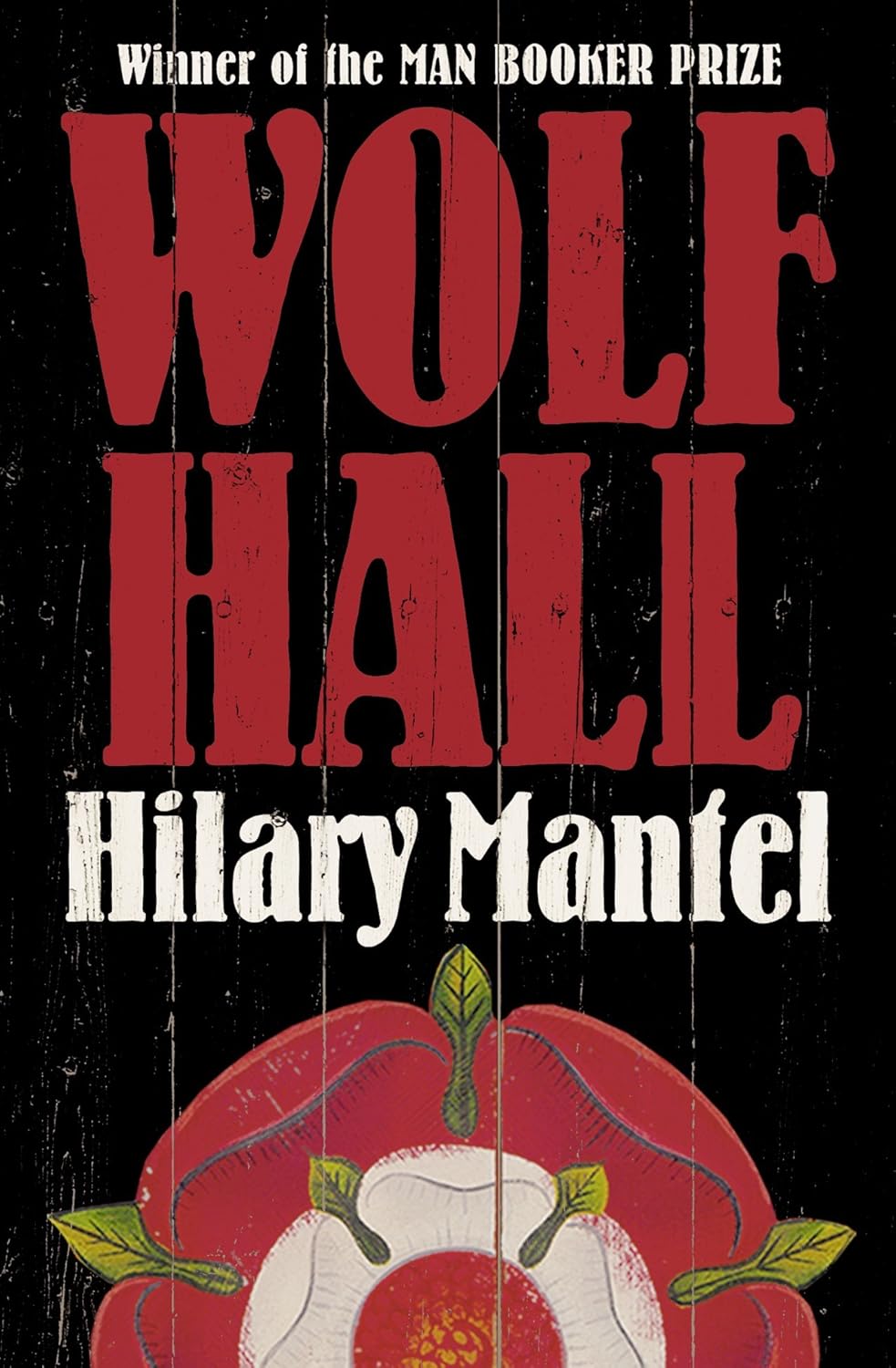 I was very prepared to like this book. Having already proven to myself that
I do not thoroughly hate historical fiction by going mad for The Marlowe
Papers, I was expecting remarkable things from Winner of ALL THE PRIZES Ms
Mantel.
I was very prepared to like this book. Having already proven to myself that
I do not thoroughly hate historical fiction by going mad for The Marlowe
Papers, I was expecting remarkable things from Winner of ALL THE PRIZES Ms
Mantel.Set in the reign of Henry VIII, Thomas Cromwell, Blacksmith's Son and former runaway, has abandoned his beloved but disgraced Cardinal Wolsey and earned himself a place in the King's court. He's good at talking people into and out of things. He gains and loses assorted familiy members. It's backstabby, it's got some women in it. They storm around in dresses and look at tapestries. The king likes to have his own way...some people get put in prison for being Lutherans...
Oh god how I raged at this book. It starts off well enough, in the beginning I quite liked ragamuffin sailor escapee young Thomas Cromwell. The first of many Thomases...Tomi, if you will. He's promising, ruthlessly building himself out of the role of 'blacksmith's son', to cloth merchant, to landed douchebag to second most powerful man in the land. As with many books, I don't know if it's my history that lets me down...I'm not reading it to learn history though, so I don't care if this isn't accurate or this couldn't have happened, I'm reading it to go on some sort of courtly rampage with some of history's most outrageous characters.
I think it's the characters I felt most let down by in this novel, actually. I found Henry VIII to be sort of sad and easily manipulated, Anne Boleyn to be a spoiled diva and Thomas Cromwell to be the king of all suckups. Katherine of Aragon was some sort of mournful martyr and I really couldn't work out why everyone hated Wolsey so much. Or Thomas More. Maybe this is historically accurate. Maybe the characters not being as you expect was what Mantel was going for. I just didn't care about what happened to any of them, really. Apart from Jane Seymour. She seemed nice*
*yes I am aware she gets the chop, historically.
The style of writing was the source of most of my rage. In fairness, it was probably ok. I finished the book at least, so something must've kept me going, although I really can't work out what. Refusing to follow my own advice and give up on books I'm not enjoying once more. Mantel's use of language and turn of phrase is occasionally genius- she is very good at creating beautiful moments that sort of last for an instant and then are gone. Many of the meetings between Thomas Cromwell and Mary Boleyn felt like that, I felt that was a story strand that was going somewhere. However, her reluctance to use proper dialogue signposts was infuriating. Some authors choose to not use speech marks and paragraphing to be cinematic, or to disorientate the characters and/or reader, but I really can't see why Mantel chose to not use speech marks or indication as to who was speaking. Or thinking. Or mixing their speech with thought. I didn't care enough about what was going on to try to work it out. Which brings me in a roundabout way on to: "He, Cromwell, went for a walk.". "He, Cromwell, entered the room". WHY?! Why keep doing this?!!? Why set such signposts in a scene that involves one man, and then omit them entirely from multi-men scenes?? Argh!!
It was very much a novel of ups and downs. Paragraphs of brilliance ruined by odd editorial choices, lacklustre characterisation and poor signposting. I am my own worst enemy when it comes to not knowing when to give up. But you can't really moan about a book unless you've read it.

No comments:
Post a Comment